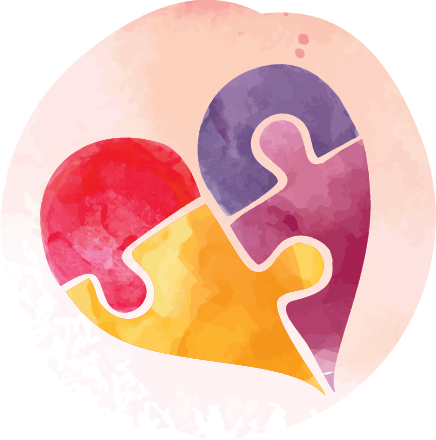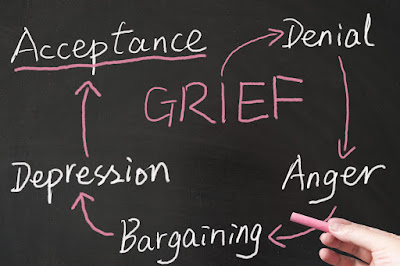Press











ABOUT Sam
SERVICES
Team Ruthless
EVENTS
GRIEFHAB™
PODCAST
RETREATS
shop
HEALING TOGETHER THROUGH THE HOLIDAYS - MAIN EVENT
HEALING TOGETHER - FOR A CAUSE: VIRTUALLY
HEALING TOGETHER - FOR A CAUSE: PILATES IN THE PARK - MICHIGAN
HEALING TOGETHER - FOR A CAUSE: VISIBLE - COLORADO
September 6-7
Jimtember Virtual Jubilee
blog
December 2nd - 8th / Metro Detroit AND VIRTUALLY
August 27th & 28th
August 30-31st
rUTHLESS IN THE ROCKIES
TEAM RUTHLESS
THE CONFIDENCE CONFERENCE
mOBILE rECOVERY dAY
Next event: September 10-23rd, Colorado
October 5-6th -
Virtual Event
September 30th, Castle Rock, Colorado
7 Groups Every week Plus Every Holiday
HEALING TOGETHER - FOR A CAUSE: Ride & ROAR - DALLAS
October 11 -12th
Stay Tuned!
FACES OF GRIEF
JOIN US
Understanding The Stages Of Grief
June 29, 2016
Losing a loved one is one of the most tragic occurrences anyone can experience. No matter the circumstances surrounding your loved one’s passing, learning how to cope with your grief and continue with your own life can seem like an insurmountable obstacle. In my work as a mental health counselor, I have worked with several individuals to overcome the grief they experienced after losing a loved one. Together, we have designed attainable plans to help them cope and recover.
In order to successfully overcome your grief, you have to understand the process. Rather than fighting the process or denying your feelings, allowing yourself to experience each new phase is often the quickest way to recover. Keep reading to learn more about the five stages of grief.
The Five Stages Of Grief:
#1: Denial
Denying or refusing to accept the reality of the situation is a common initial response to the death (or impending death) of a loved one. Individuals in the denial phase aren’t trying to be difficult or obstinate; their denial is simply a defense mechanism their mind has subconsciously designed to lessen the harsh impact of the news.
#2: Anger
Though it can make things easier to cope with in the beginning, denial can’t last for long. At a certain point, the reality of the situation will become impossible to ignore. Anger is the natural next step. Anger is easier to cope with than sadness (probably because it requires less vulnerability), so most people move on to this phase immediately after denial.
#3: Bargaining
One of the worst parts about losing a loved one is the feeling of helplessness that often accompanies the loss. Once they get past their anger, most people begin second-guessing their actions and looking for different paths that would have led to a better outcome. Common examples include thoughts such as “If we had only asked another doctor for a second opinion…” or “If only I had been a better friend/parent/child…” In some cases, people may even turn their attention to towards a higher power and begin bargaining with God to spare their loved one’s life in exchange for some form of repentance.
#4: Depression
At a certain point, grieving people realize that their efforts thus far (denial, anger, and bargaining) are not producing the results they want – their loved one is still gone. At this point, they may give up trying to “fix” the situation and may succumb to the sadness and grief they feel over the situation. Depression is a quiet, relatively private stage that can last for some time. It is important to give yourself the time you need to get past this stage; don’t rush through it prematurely.
#5: Acceptance
Not everyone reaches this final stage, but it is a goal everyone should work towards. Eventually, given the proper time, encouragement, and support, you can accept your loved one’s passing and switch your focus back to your own life. It’s important to realize that reaching acceptance doesn’t automatically mean you are happy again – this stage simply means that you have accepted your loved one’s passing and are no longer trying to deny it or figure out a way around it. Once you have been in the acceptance stage long enough, you may find yourself able to feel truly happy again.
Leave a Reply Cancel reply
120 E. Front St. Loft 2 Traverse City MI 49684 &
77 Monroe Center St Ste 600 Grand Rapids MI 49503
phone : +1 (231)707-0707


Donate TO GRIEFHAB™
Donate today to help make our events and services free for everyone.
You can also donate directly to support a specific client in need.
four
three
info & Investment
two
THE FOUNDER
one
fIVE
GRAB A COPY OF MY
BOOKS & MERCHANDISE
four
three
info & Investment
two
THE FOUNDER
one


fIVE
GRAB A COPY OF MY
BOOKS & MERCHANDISE










HEALING TOGETHER EVENT
EVENTS
four
three
info & Investment
two
THE FOUNDER
one
fIVE
GRAB A COPY OF MY
BOOKS & MERCHANDISE
four
three
info & Investment
two
THE FOUNDER
one





fIVE
GRAB A COPY OF MY
BOOKS & MERCHANDISE










FACEBOOK FAMILY
GRIEFHAB™ SERVICES
FACES OF GRIEF
Our Press Features
THE BE RUTHLESS SHOW
two
three
Recent Articles
one





Coming in September! Stay Tuned.
December 2nd -8th / Metro Detroit AND VIRTUALLY
August 25th
August 30-31st
October 11 -12th
Stay Tuned!










four
three
info & Investment
two
THE FOUNDER
one





fIVE
GRAB A COPY OF MY
BOOKS & MERCHANDISE
four
three
info & Investment
two
THE FOUNDER
one





fIVE
GRAB A COPY OF MY
BOOKS & MERCHANDISE











